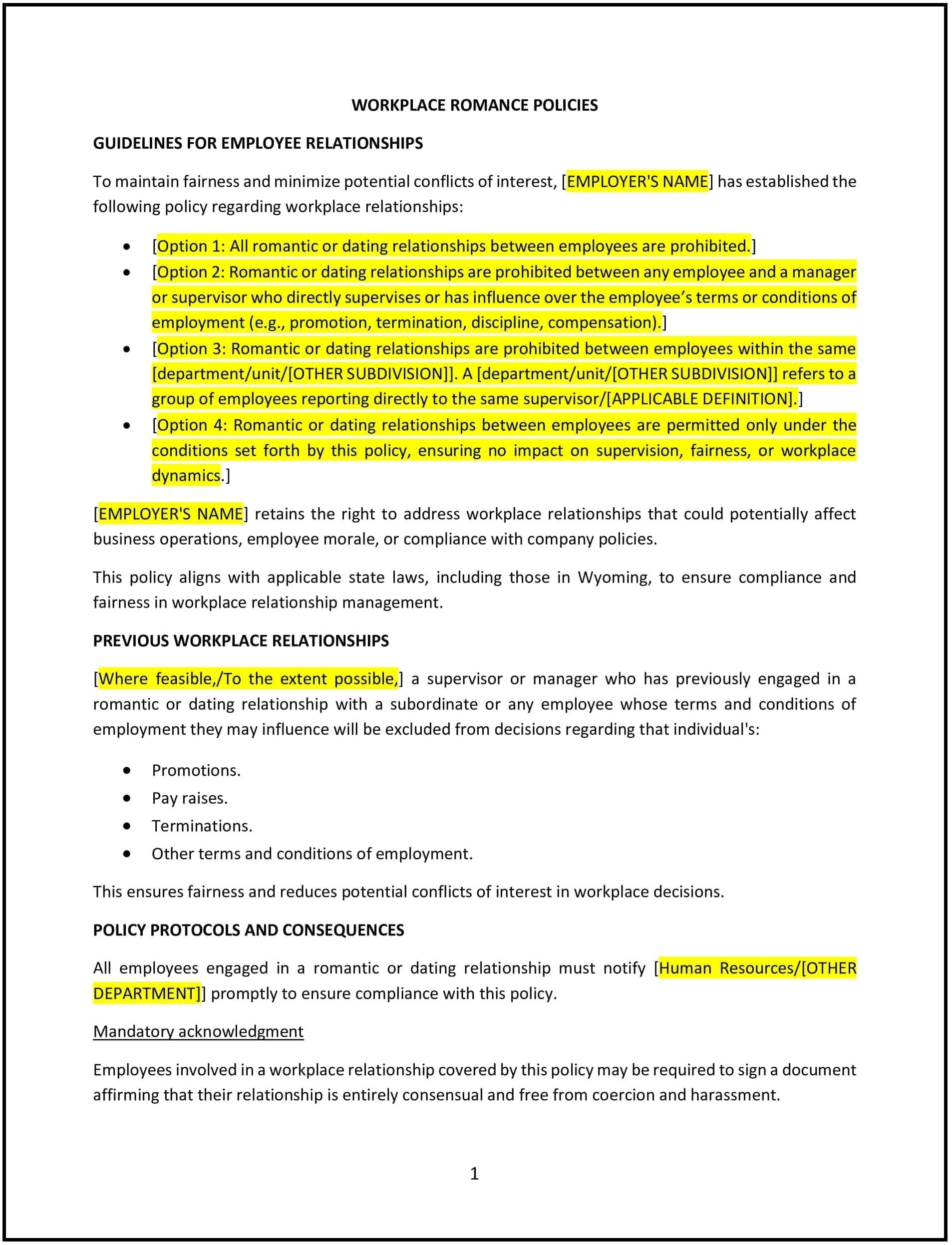Got contracts to review? While you're here for policies, let Cobrief make contract review effortless—start your free review now.

Customize this template for free
Workplace romance policy (Wyoming)
In Wyoming, a workplace romance policy provides guidelines for managing personal relationships between employees to prevent conflicts of interest, favoritism, and workplace disruptions. This policy promotes professionalism while supporting compliance with employment laws and fostering a positive work environment.
This policy outlines acceptable behaviors, disclosure requirements, and procedures for addressing potential issues related to workplace romances.
How to use this workplace romance policy (Wyoming)
- Define workplace relationships: Clearly specify the types of relationships covered by the policy, such as romantic, consensual, or familial relationships between employees.
- Outline disclosure requirements: Provide guidelines for employees to disclose workplace romances to HR or management to ensure transparency and avoid conflicts of interest.
- Establish conduct expectations: Include expectations for professional behavior, such as avoiding favoritism, inappropriate conduct, or disruptions in the workplace.
- Detail resolution procedures: Specify steps for addressing issues arising from workplace romances, including reassignments or mediation if necessary.
- Support compliance: Align the policy with Wyoming labor laws and anti-discrimination regulations to ensure fairness and improve legal adherence.
Benefits of using a workplace romance policy (Wyoming)
A workplace romance policy provides several advantages for Wyoming businesses:
- Promotes professionalism: Encourages appropriate behavior and minimizes workplace disruptions caused by personal relationships.
- Supports compliance: Aligns with employment laws, reducing the risk of harassment claims or legal disputes.
- Enhances transparency: Provides clear guidelines for employees to disclose relationships, fostering trust and accountability.
- Reduces conflicts of interest: Prevents favoritism or perceived bias that may arise from workplace romances.
- Adapts to local needs: Reflects Wyoming’s unique workforce dynamics and business values.
Tips for using a workplace romance policy (Wyoming)
- Communicate clearly: Share the policy with employees during onboarding and ensure it is accessible for future reference.
- Encourage disclosure: Create a supportive environment where employees feel comfortable disclosing relationships without fear of retaliation.
- Provide training: Offer training on maintaining professionalism and recognizing conflicts of interest in workplace relationships.
- Document disclosures: Maintain accurate and confidential records of disclosed relationships to promote compliance and transparency.
- Review periodically: Update the policy to reflect changes in laws, workplace practices, or employee feedback.